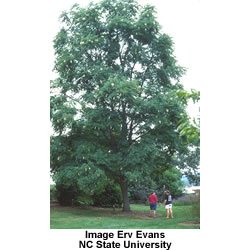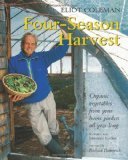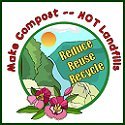You are here:
Home > Trees > Kentucky Coffee Tree
Kentucky Coffee Tree
Gymnocladus dioica

Price Each
$29.95

Kentucky Coffee Tree:
The Kentucky Coffee Tree, Gymnocladus Dioicus, may also be known as American coffee berry, Kentucky mahogony, nicker treet, or stump tree. Kentucky Coffee trees are large round-barked trees belonging to the legume family and reaches heights of 60 to 100 feet. Its short trunk, 1 to 2 feet in diameter, divides into several large branches. The leaves are ovalish and are 2-4 inches long. An unofficial state tree of Kentucky, the Kentucky Coffee Tree is closely related to the honeylocust. This deciduous tree is ideal as a shade tree on larger, ungroomed properties. It got its name because early North American colonists used the large seeds to make coffee. When eaten raw, the seeds are poisonous. The bark is deeply furrowed and dark brown in colour. It adapts well to urban conditions. Fall color is yellow turning to orange.

FREE Garden Journal!!
Join "Garden Notes" and plan for Harvest Success as you track and record your gardening progress.
Your Free Personal Garden Journal has pages for jotting down notes on the seeds you start,
your new plantings, when you fertilized, and even a graph to plot a new garden.
What's New?
"Organic food has a higher nutritional value than ordinary produce, a study by Newcastle University has found."
"A team grew fruit, vegetables and reared cattle on adjacent organic and non-organic sites across Europe.
They found up to 40% more antioxidants could be found in organic fruit and vegetables than in non-organic.
The team said the findings call into question the current stance of the Food Standards Agency (FSA), which is neither for nor against organic food."
Organic Food Gardening Guide
Free
Gardening Catalog
Click Here
Book of the Month

A book full of valuable information on how to harvest fresh vegetables and salad
ingredients literally year-round--yet without an expensive greenhouse or indoor light garden set-up.
Coleman combines succession planting (small sowings three or more times, rather than
one big endeavor) with cold-frame growing in the winter months. He includes how-tos for building simple cold-frames.
Read More...
Garden Tip of the Day










